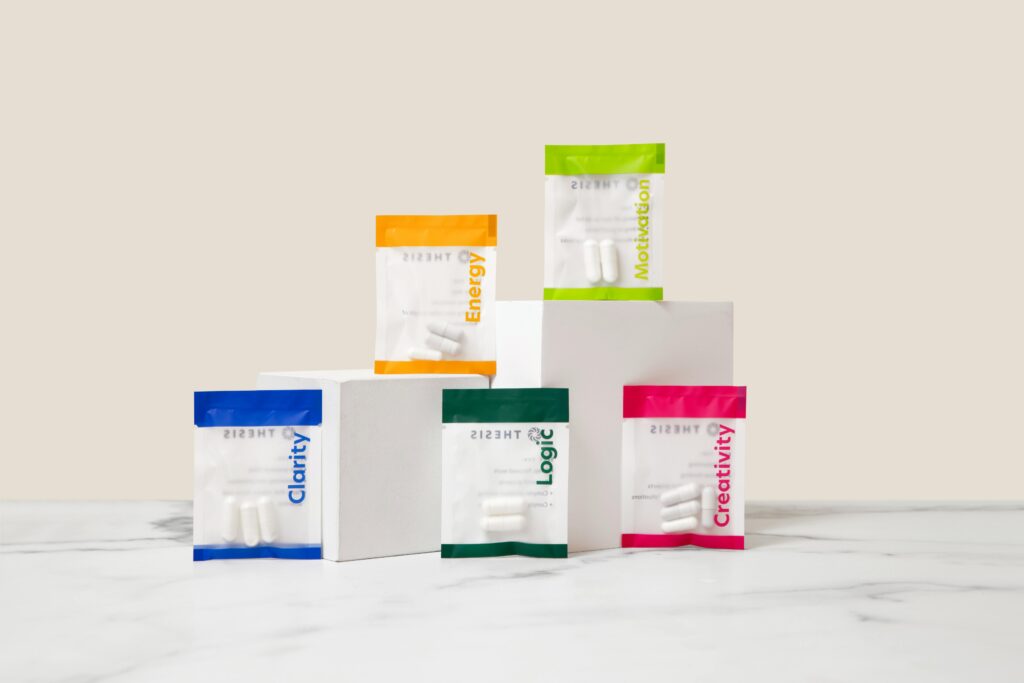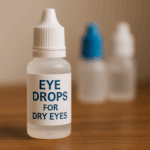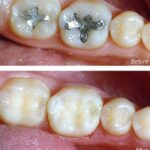Clear the fog, and sharpen your mind – nootropics can help you regain your mental edge.
At askdoctor.ai, This content is crafted with knowledge about nootropics or smart drugs, their types, advantages, risks, and inspiring success stories from those who have experienced them. Our goal isn’t just to educate—it’s to empower, providing hope, motivation, and practical guidance as you work toward mental clarity and cognitive well-being. You are never alone. With the right knowledge, support, and brain-enhancing tools, you can regain focus, energy, and sharpness. We’re here to inspire hope and empower you to overcome difficult moments with your mental health.
What is Nootropic or Smart Drugs: How it Works
Nootropics, often referred to as “smart drugs” or cognitive enhancers, are substances that purport to improve mental functions such as memory, creativity, and attention in healthy individuals. The term “nootropic” was first introduced in 1972 by Romanian psychologist and chemist Corneliu E. Giurgea, derived from the Greek words “nous” (mind) and “trepein” (to bend or turn), indicating substances that can “turn” or enhance the mind.
The mechanisms by which nootropics are believed to work vary depending on the specific substance. Some common mechanisms include:
- Enhancing Neurotransmitter Activity: Certain nootropics may increase the release or inhibit the breakdown of neurotransmitters like acetylcholine, dopamine, and glutamate, which play key roles in learning, memory, and attention. For example, racetams such as piracetam are thought to modulate cholinergic systems, thereby enhancing cognitive function.
- Improving Cerebral Blood Flow: Some nootropics act as vasodilators, increasing blood flow to the brain. This can enhance the delivery of oxygen and nutrients, potentially improving mental energy and performance. Natural substances like Ginkgo biloba have been studied for their vasodilatory effects.
- Protecting Against Neurotoxicity: Nootropics may offer neuroprotective benefits by safeguarding neurons from damage due to toxins or oxidative stress. This protective effect can contribute to maintaining cognitive health over time.
- Modulating Brain Wave Activity: Some compounds, such as L-theanine found in tea, are believed to promote alpha brain wave activity, which is associated with a state of relaxed alertness and improved focus.
Types of Nootropics or Smart Drugs for Cognitive Decline
It’s important to note that while some studies suggest potential cognitive benefits of certain nootropics, the overall evidence remains mixed, and more rigorous research is needed to fully understand their efficacy and safety. Furthermore, the regulation of nootropic supplements varies by country, and some substances may not be approved for medical use. For instance, in the United States, the Food and Drug Administration (FDA) has issued warnings about the marketing of unapproved drugs as dietary supplements.
Before considering the use of nootropics, it’s advisable to consult with a healthcare professional to discuss potential benefits, risks, and appropriate usage based on individual health needs and circumstances. Below is an overview of various types of nootropics:
1. Central Nervous System (CNS) Stimulants
These substances stimulate brain activity, leading to increased alertness and attention.
- Methylphenidate (Ritalin): Prescribed for attention-deficit hyperactivity disorder (ADHD), it has been noted for off-label use to enhance cognitive performance in healthy individuals.
- Modafinil (Provigil): Approved for sleep disorders like narcolepsy, it is also used off-label for cognitive enhancement due to its wakefulness-promoting properties.
2. Racetams
A class of synthetic compounds purported to enhance cognitive function, though their efficacy in healthy individuals remains under investigation.
- Piracetam: One of the earliest nootropics, it is believed to influence neuronal and vascular functions without acting as a sedative or stimulant.
- Aniracetam: Known for its potential cognitive-enhancing effects, it has been studied for its impact on neurotransmitter modulation.
3. Cholinergic
These compounds influence the cholinergic system, which is integral to memory and learning.
- Alpha-GPC: A choline compound that serves as a precursor to acetylcholine, a neurotransmitter associated with memory and cognition.
- Citicoline (CDP-Choline): A naturally occurring compound that may support cognitive function by enhancing phospholipid synthesis and neurotransmitter production.
Important Considerations:
While some nootropics are available over-the-counter, others require a prescription. The efficacy and safety of these substances can vary, and self-prescribing, especially with prescription medications, is not recommended. Potential side effects, interactions with other medications, and individual health conditions should be carefully considered. Consulting a healthcare professional before starting any nootropic or supplement regimen is strongly advised.
Natural Nootropics for Brain Fog & Cognitive Decline
Brain fog and cognitive decline can significantly impact daily life, leading many to explore natural nootropics—substances derived from natural sources that may enhance cognitive function. Below are some natural nootropics that have been studied for their potential benefits:
1. Omega-3 Fatty Acids
Found in fatty fish like salmon and mackerel, omega-3s are essential for brain health. They contribute to maintaining healthy brain cell membranes and have been associated with improved cognition, particularly in individuals with Alzheimer’s disease or dementia.
2. B Vitamins
Vitamins B6, B9 (folic acid), and B12 play crucial roles in brain function. They are involved in energy production and the synthesis of neurotransmitters. While deficiencies in these vitamins can lead to cognitive impairments, supplementation in individuals without deficiencies has shown mixed results.
3. Vitamin D
Known as the “sunshine vitamin,” vitamin D supports brain health and cognitive function. Low levels have been linked to memory issues and depression. The recommended daily intake is 600 IU for adults up to 70 years old and 800 IU for those older.
4. Magnesium
Magnesium is vital for nerve transmission and memory. Adequate intake may help alleviate brain fog. Dietary sources include nuts, seeds, whole grains, and leafy green vegetables.
5. Ginkgo Biloba
An herbal supplement traditionally used to enhance memory and cognitive speed by improving blood flow to the brain. However, studies have shown mixed results regarding its effectiveness.
6. Panax Ginseng
Commonly used in traditional medicine, Panax ginseng has been studied for its potential to improve cognitive function, behavior, and quality of life. However, more rigorous research is needed to confirm these effects.
7. Rhodiola Rosea
An adaptogen that may combat mental fatigue and improve cognitive function. Some studies suggest benefits, but further research is necessary to establish its efficacy.
Important Considerations:
While a balanced diet generally provides these natural nootropics safely, people should approach supplementation with caution The U.S. Food and Drug Administration (FDA) does not strictly regulate supplements, leading to variability in product quality. Consulting with a healthcare provider before starting any new supplement regimen is advisable, especially for individuals with existing health conditions or those taking other medications.
Incorporating a nutrient-rich diet alongside healthy lifestyle practices—such as regular physical activity, adequate sleep, and mental engagement—can significantly support cognitive health and mitigate the effects of brain fog and cognitive decline.
The specific amount of Nootropics Dosages
For managing conditions like brain fog and cognitive decline, proper dosage of supplements or medications can play a key role. However, it’s important to remember that individual needs vary, so consulting with a healthcare professional is always the best option.
That said, here are some common supplements and their general dosages for cognitive function and brain fog, but again, please consult with your healthcare provider for personalized advice:
- Omega-3 Fatty Acids (EPA and DHA):
- Typical Dose: 1000 mg to 3000 mg per day
- Source: Omega-3s support brain health and reduce inflammation.
- Vitamin D:
- Typical Dose: 1000 IU to 2000 IU per day (can vary depending on blood levels)
- Source: Vitamin D plays a role in brain function and may improve mood.
- B Vitamins (especially B12 and Folate):
- Typical Dose: B12 (1000 mcg) and Folate (400 mcg) per day
- Source: B vitamins are essential for nerve function and energy production.
- Ginkgo Biloba:
- Typical Dose: 120 mg to 240 mg per day
- Source: May help with cognitive function and blood flow to the brain.
- Acetyl-L-Carnitine (ALCAR):
- Typical Dose: 500 mg to 2000 mg per day
- Source: Known for supporting energy production in the brain and improving mental clarity.
- Phosphatidylserine:
- Typical Dose: 100 mg to 300 mg per day
- Source: A phospholipid that supports brain cell membranes and cognitive health.
- L-Theanine:
- Typical Dose: 100 mg to 400 mg per day
- Source: Known to improve focus and reduce anxiety.
Important Notes:
- Always begin with a lower dose and gradually increase if necessary.
- If you’re on any medications or have pre-existing health conditions, make sure to check with a healthcare provider to avoid potential interactions.
- Lifestyle factors, such as a healthy diet, regular exercise, and sleep hygiene, are also essential in managing brain fog and cognitive decline.

Photo by Thesis from Pexels
Risks of Taking Nootropics or Smart Drugs
Nootropics, or “smart drugs,” are substances that claim to enhance cognitive function, memory, focus, and mental clarity. Although some nootropics offer promising benefits, they also come with potential risks and side effects. Therefore, here’s what you need to know before taking them.
Potential Risks of Nootropics:
1. Dependency and Tolerance
- Some nootropics, especially prescription stimulants (e.g., Adderall, Modafinil), can lead to dependence over time.
- Users may develop a tolerance, requiring higher doses for the same effect, increasing the risk of side effects.
2. Side Effects
- Common Side Effects: Insomnia, anxiety, headaches, nausea, digestive issues.
- Serious Side Effects: Increased heart rate, high blood pressure, mood swings, hallucinations (in rare cases).
3. Cognitive Overload
- While these substances may boost focus, they can also cause mental overstimulation, leading to fatigue and burnout.
4. Interactions with Other Medications
- Nootropics may interfere with medications such as blood thinners, antidepressants, and antihypertensive drugs.
- Example: Modafinil can reduce the effectiveness of birth control pills.
5. Long-Term Safety is Uncertain
- Many nootropics lack long-term studies, meaning their effects on brain health over years of use are unknown.
6. Potential for Misuse
- Students and professionals sometimes misuse stimulant-based nootropics (e.g., Adderall, Ritalin) for productivity, which can lead to addiction and adverse psychological effects.
7. Quality and Purity Issues
- Unregulated over-the-counter or online nootropics can lead to contamination or inaccurate ingredient labeling.
Safer Alternatives of Nootropics
If you’re looking to enhance cognitive function naturally, consider:
- Regular Exercise – Boosts blood flow and neurogenesis.
- Proper Sleep – Essential for memory consolidation.
- Healthy Diet (Mediterranean Diet, Omega-3s, Antioxidants) – Supports brain health.
- Stress Management (Meditation, Yoga, Mindfulness) – Helps prevent mental fatigue.
- Natural Nootropics (L-Theanine, Bacopa Monnieri, Rhodiola Rosea, Ginkgo Biloba) – Have fewer risks compared to synthetic options.

Real-Life Success: How Nootropics Changed Lives
Nootropics have gained popularity as cognitive enhancers, helping people improve focus, memory, and mental clarity. Although scientific research on some nootropics is still ongoing, many individuals, meanwhile, have shared personal success stories about how these supplements have transformed their lives.
Can pills make you smarter? | Smart Drugs – True Story Documentary
References:
Wikipedia about Nootropics
National Library of Medicine
Harvard Health about Brain Health Supplements
Health about Nootropics









Leave a Reply